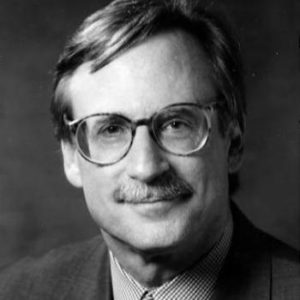
I watched substantial parts of the Stanford academic freedom conference on Friday and a little on Saturday. (I didn’t go because after being in a car, an airplane, and a bus for a total of over 20 hours to visit a friend in New Hampshire, my left leg was hurting, and I couldn’t imagine driving 2 hours to Stanford and then sitting for hours more.)

Overall, the parts I saw were excellent. I thought some of the best talks were by Jay Bhattacharya, Tyler Cowen, John Ioannidis, John Hasnas, Peter Arcidiacono, and Solveig Gold. Arcidiacono’s talk reminded me of a wonderful poem called “The Paradoxical Commandments.” I posted about it some years ago here.
There was one discordant note, though, in a speech by Peter Thiel.
Thiel was laying out what he sees as the failure of STEM. He thinks that we just have not made the amount of technological progress that we should have made in the last few decades and he attributes that, in part, to the failure of universities in the hard sciences. I have no opinion on that; he knows more than I do about technological progress and so he may well be right.
After making that point, he stated that with 4% economic growth annually, a lot of our economic problems would go away. I agree with that.
Then he said that the Boskin Commission, which was appointed by the U.S. Senate Finance Committee in the mid-1990s to evaluate how good a measure the Consumer Price Index is, lied (his word). Instead of getting 4% growth, said Thiel, they handled the issue by claiming that 2% growth is really 4% growth because the CPI overstates inflation by understating quality improvements.
They didn’t lie. That was a scurrilous attack by Thiel.
First, the Commission stated that the CPI overstated inflation by 1.1 percentage points, not 2 percentage points. Second, it had good grounds for that. Later, Mike Boskin actually laid out the grounds for thinking that the CPI systematically overstates inflation by 0.8 to 0.9 percentage points per year. It’s in “Consumer Price Indexes” in David R. Henderson, ed., The Concise Encyclopedia of Economics. Here’s what the Commission said in its report:
Our Interim Report of September 15, 1995, presented initial estimates of biases in the CPI. We estimated that the overall bias had been 1.5 percentage point per annum in recent years, but changes in the CPI methodology then in prospect from BLS would eliminate as much as 0.5 percentage point per annum of this bias, reducing the bias going forward to 1.0 percentage point per annum. We have now revised our estimates to reflect changes in the CPI announced by BLS on March 29, 1996, and new estimates of the impact of biases due to the introduction of new products and changes in the quality of existing products. The BLS has eliminated some of this bias totaling 0.24 percentage point per year, raising our estimate of the bias going forward by one-quarter of one percentage point. In addition, we have revised our estimates of new products/quality change bias upward by 0.10 percentage point per year.
I get a little lost in the weeds here but whatever the exact bias, the point is, with regard to Thiel’s claim, that the Commission had a good basis for its conclusions. Moreover, quality improvements were only part of the story. Another part was substitution bias. Yet another was outlet bias. Boskin explains it all here. If there was a liar, and I’m not saying there was because I don’t know if Thiel is simply ignorant, it was not Mike Boskin or the Boskin Commission.
Thiel wound up this part of his discussion by saying that the economists were saying (and I’m quoting as exactly as I remember) that we should tell grandma that because her cell phone is a little thinner, that makes up for the fact that she’s eating cat food. I’ll leave you to judge whether that’s close to an accurate conclusion based on what economists are saying about quality changes, new products, substitution bias, and outlet bias.
The picture above is of Mike Boskin.
Disclosure: During the extreme Santa Clara county lockdown, Mike Boskin had some very pleasant interactions by email, to the point where he has become somewhat of a friend.

READER COMMENTS
Spencer
Nov 7 2022 at 11:19am
There are many specialized price indices. Making an index that applies to most people would take constant revisions to the mean.
Andrew_FL
Nov 7 2022 at 11:29am
I would not use the word “lie” either, but I would use the word “pseudoscience”
The whole pretense that one can make a “quality adjustment” quantitatively to price indices-that one can measure the “price of a constant level of consumer utility” is complete nonsense.
Scott Sumner
Nov 7 2022 at 12:49pm
Very good post. I don’t believe there is any “true” rate of inflation, and all of these exercises are somewhat subjective. But Theil’s statement was reckless and irresponsible.
David Henderson
Nov 7 2022 at 12:56pm
Thanks, Scott. I agree. But I think the Boskin Commission was closer to the right answer than the BLS was.
Comments are closed.